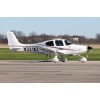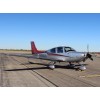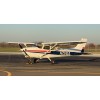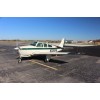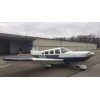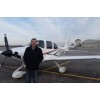Have you ever wondered how pilots fly through clouds and land on a runway they can’t always see? This is done by flying solely with reference to the instruments, under Instrument Flight Rules (IFR). Flying IFR basically means that you are flying, and navigating using instruments in the airplane, rather than flying and navigating by reference to what you can see outside. once you are able to fly IFR, you are certified to take off, operate, and land in weather that a normal private pilot would be grounded by. Though not required, many pilots who fly recreationally choose to get an Instrument Rating because it is useful to have if you are traveling. Others get an Instrument Rating because it is required by many professional flying jobs. Overall, obtaining an Instrument Rating will teach you how to fly in a more measured, situationally aware, and refined way.
Typically, an instrument rating will cost about $10, 000-$12,000 to obtain over about six months if one is flying consistently. This range in cost is determined by how consistently you are doing your lessons, how proficiently you prepare yourself with self-study and ground instruction, and how much experience you have as a private pilot. Capital City Aviation is lucky to have a number of Certified Instrument Flight Instructors (CFII) who have practical experience flying in Instrument Meteorological Conditions professionally. This translates into better training for you. When obtaining an instrument rating, you can look forward to learning how to fly by reference to the instruments, and learning how to navigate and communicate more closely with Air Traffic Control using IFR procedures. Ultimately, obtaining an Instrument Rating will give you the opportunity to see what many pilots know and love, a sea of clouds below you.











